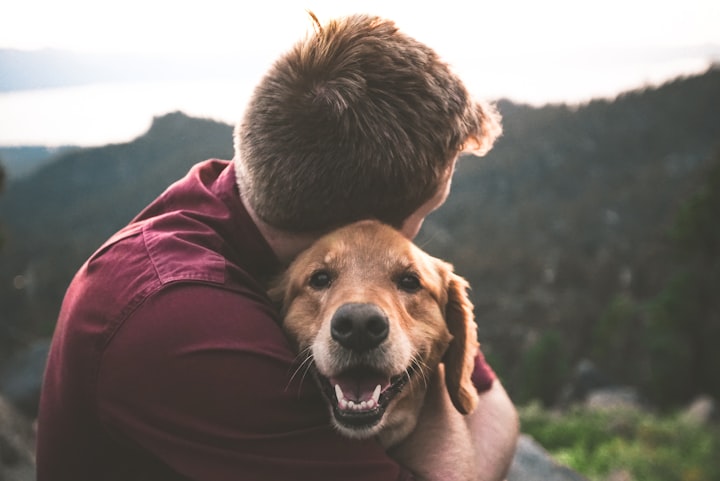If a bear hit a human head with its paw, what would happen?
Understanding the Impact of a Bear Paw Strike on the Human Head
A bear's paw can cause severe injuries to a human head. In this article, we'll explore the potential damage a bear's paw can cause and what to do if you find yourself in this dangerous situation.
Introduction:
Bears are powerful animals that can cause serious harm if they feel threatened or provoked. One of the most feared attacks is when a bear hits a human head with its paw. The sheer force of a bear's paw can cause severe injuries and even be fatal. In this article, we'll explore what happens when a bear hits a human head with its paw and what you should do if you find yourself in this dangerous situation.
Understanding Bear Behavior:
Bears are generally not aggressive towards humans but can become aggressive if threatened or provoked. It's essential to understand bear behavior and how to avoid provoking them. Bears can stand on their hind legs, allowing them to swipe and hit their prey using their front paws. A bear can use this same technique on a human if they feel threatened.
The Force of a Bear's Paw:
A bear's paw is incredibly powerful and can cause severe damage to a human head. A bear's paw can weigh up to 500 pounds and has sharp claws that can easily tear through skin and muscle. The force of a bear's paw can be compared to a sledgehammer, which can cause severe trauma to the head.
Injuries Caused by a Bear's Paw:
If a bear hits a human head with its paw, the injuries can be severe. The most common injuries are skull fractures, brain damage, and severe bleeding. A bear's claws are also sharp and can cause lacerations to the head and face. If the bear hits the head with enough force, it can cause instant death.
What to Do If a Bear Hits Your Head:
If a bear hits your head with its paw, it's crucial to act quickly. The first step is to try to get away from the bear as quickly as possible. If the bear is still attacking, try to fight back with whatever you have available, such as a stick or pepper spray. Once you are safe, seek medical attention immediately. Even if the injuries don't seem severe, it's essential to get checked by a medical professional.
Preventing Bear Attacks:
The best way to avoid a bear attack is to stay away from bears. If you're in bear country, make sure to take precautions, such as making noise to alert bears of your presence. If you do encounter a bear, never run away. Instead, back away slowly while facing the bear. If the bear charges, use bear spray or any other deterrent available.
Frequently Asked Questions:
Q. Can a bear kill a human with one swipe of its paw?
It is possible for a bear to kill a human with one swipe of its paw, especially if the bear is large and powerful. A bear's paw can weigh up to several hundred pounds, and its claws are sharp and strong enough to penetrate through flesh and bone.
However, it's important to note that bears generally do not attack humans without provocation. Most bear attacks occur when a bear feels threatened or surprised and sees the human as a potential threat. In these cases, the bear may charge or attack to defend itself.
It's also worth noting that not all bear attacks result in fatalities. In fact, many bear attacks are survivable if the victim receives prompt medical attention and takes the proper steps to avoid infection and other complications.
In any case, it's crucial to take precautions when in bear country, including making noise to avoid surprising a bear, carrying bear spray or other deterrents, and understanding bear behavior. If you do encounter a bear, remain calm, back away slowly, and use deterrents if necessary. By respecting these magnificent creatures and their habitat, we can help prevent bear attacks and coexist safely in the wilderness.
Q. What should I do if I see a bear?
If you see a bear in the wild, it's important to stay calm and remember the following tips:
Don't run: Running may trigger a bear's predatory instincts and cause it to chase you. Slowly back away while facing the bear.
Make noise: Bears typically try to avoid humans, so making noise can alert them to your presence and prevent surprising them. Clap your hands, sing, or talk loudly.
Keep your distance: Give the bear plenty of space and avoid getting too close. If the bear approaches you, back away slowly.
Carry bear spray: Bear spray is a highly effective deterrent that can help fend off a bear attack. Keep it accessible and know how to use it.
Don't disturb the bear: Avoid making sudden movements, throwing objects, or attempting to get closer to the bear to take a picture.
Identify yourself: Speak calmly and let the bear know you are a human. This can help prevent the bear from feeling threatened.
Remember, bears are wild animals, and it's crucial to give them the space and respect they deserve. If a bear does charge or attack, use bear spray or any other deterrent available to fight back. And if you or someone else is injured, seek medical attention immediately. With proper precautions and knowledge, you can help prevent bear attacks and stay safe in bear country.
Q. Can I fight back if a bear attacks me?
If a bear attacks you, it's important to do everything possible to defend yourself. While fighting back may not always be the best option, it can be effective in certain situations. Here are some tips to keep in mind:
Use bear spray: Bear spray is the most effective deterrent against a bear attack. It can stop a bear in its tracks and give you time to retreat to safety.
Fight back: If the bear is charging at you, use any available object to defend yourself, such as a stick or rock. Aim for the bear's sensitive areas such as its eyes, nose, and mouth.
Play dead: If the bear has knocked you down and is attacking, it may be best to play dead. Lie flat on your stomach with your hands clasped behind your neck and legs spread apart to make it more difficult for the bear to flip you over.
Don't give up: Keep fighting as long as possible, even if the bear continues to attack. Many people have survived bear attacks by fighting back with all their strength.
Remember that different types of bears have different behaviors and respond differently to different situations. It's important to understand the behavior of the specific type of bear you may encounter in your area and to take the appropriate precautions. In general, it's best to avoid confrontations with bears whenever possible by making noise and carrying bear spray. If you do encounter a bear, stay calm, back away slowly, and be prepared to defend yourself if necessary.
Conclusion:
If a bear hits a human head with its paw, the injuries can be severe, and it's essential to seek medical attention immediately. Understanding bear behavior and taking precautions in bear country can Understand bear behavior and taking precautions in bear country can help prevent bear attacks. If you do encounter a bear, never run away, and try to back away slowly while facing the bear. If the bear charges, use bear spray or any other deterrent available to fight back.






Comments
There are no comments for this story
Be the first to respond and start the conversation.